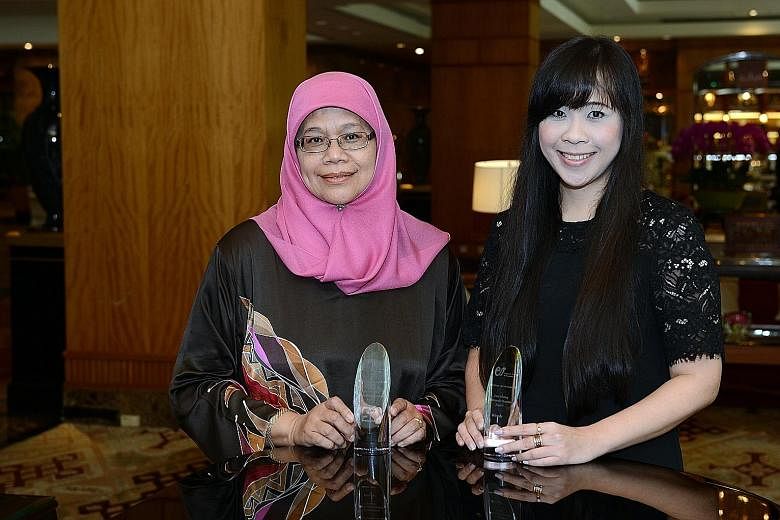Singapore can be better prepared for economic transition if its students learn how to apply knowledge to solve real-world issues, said the Acting Minister for Education (Schools) yesterday.
Mr Ng Chee Meng told the Singapore Economic Policy Forum that people must be "future-ready" if Singapore is to overcome its demographic challenges and technological disruption.
"We want our students to be better able to apply their learning to real-world contexts, be equipped with the knowledge and skills that will help them learn and innovate continually."
Mr Ng used the forum to honour members of the teaching fraternity for taking just such an approach in their classrooms.
The event also welcomed Singapore's first Outstanding Economics Teacher awards. Two junior college teachers beat about 30 other nominees to emerge as the overall winners for demonstrating excellence in their field.
Ms Deborah How, head of arts at Hwa Chong Institution, was lauded by Mr Ng for her ability to make even the most complicated of ideas tangible and understandable to students, and inspiring their love for learning.
For instance, Ms How would use the example of "durian price wars" to show students that although price wars are mostly a feature of oligopolistic industries, they can also break out in a "monopolistic competition" environment when a small number of durian shops within the bounds of one Housing Board estate cut prices to com- pete.
Madam Rahimah Salim, the lead teacher of economics at Anglo-Chinese Junior College, was praised by Mr Ng for her acute awareness of students' evolving learning styles, and for guiding fellow teachers to use seminar-style teaching to make learning more interactive.
Madam Rahimah has taught at the school for 32 years, but said that no two lessons are ever the same.
"The award strengthens my passion for teaching economics," she added.
The awards were launched by the Economic Society of Singapore, which organised yesterday's forum at the Regent Hotel.
Economists discussed the new challenges faced by the Singapore economy, such as how to deliver innovation and manage rising wage expectations.
Singapore Management Uni- versity economist Hoon Hian Teck warned that just having a constant flow of new ideas move through the economy every year would not be enough to deliver the growing wages that many aspire to.
Rather, Singapore must grow its "innovation intensity", and "deliver new ideas at a compound rate in order to generate the kind of productivity growth to support wage aspirations".
This can be supported by changes in the education system, but there is still a limit to how much indigenous "innovation intensity" can grow, and when the citizen workforce begins to shrink from 2020 onwards, the supply of innovators here may need a boost.
Fellow speaker UOB economist Francis Tan agreed.
"The problem of demographics is very scary for Singapore," he said, given the low fertility rates.
"How can we increase the labour force? Easy. Either increase the inflow or foreign workers, or give birth more."
Marissa Lee


